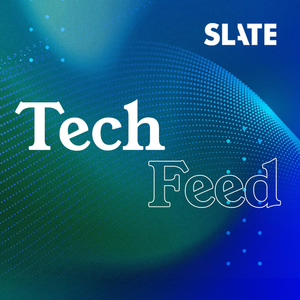
05: AI & Energy Transitions in Asia
02/03/25 • 62 min
For many countries in Asia, pathways to clean energy transitions are complex with continued reliance on coal and legacy infrastructure, a rapidly urbanising economy, and a booming data centre industry. How can we ensure that AI adoption is both safe and sustainable while also fostering equitable energy transitions?
In this episode, we hear from John Cotton & Priya Donti on the enthusiasm of governments in Asia in using AI to improve the efficiency of energy systems & manage energy demand & supply. We discuss AI’s potential to help integrate renewable energy sources into the grid, challenges in the area, environmental impacts & ways to manage them, and the need to invest in capacity building & skill development.
You can read the transcript for this episode here.
Speakers
John Cotton
John Cotton is Senior Program Manager for the Southeast Asia Energy Transition Partnership, UNOPS with a demonstrated history of project development in energy transition, renewables, IT and mining industries. John is educated in the UK at Manchester and Sussex Universities with a B.Sc (Hons) in Mathematics, Software Engineering, and an M.Sc in Energy Policy, respectively.
John has been based in Southeast Asia for 20 years and has overseen projects ranging from EPC contracts for hydropower and solar projects, through policy analysis and recommendations for the multi-disciplinary energy transition challenges faced across the region. Before ETP, he was Climate Change Policy Officer at the British Embassy, Vientiane of Lao PDR, and draws on extensive experience from both the public and private sectors.
Priya Donti
Priya Donti is an Assistant Professor at MIT EECS and LIDS, whose research focuses on machine learning for forecasting, optimisation, and control in high-renewables power grids. Specifically, her work explores methods to incorporate the physics and hard constraints associated with electric power systems into deep learning workflows.
Priya is also the co-founder and Chair of Climate Change AI, a global non-profit initiative to catalyse impactful work at the intersection of climate change and machine learning. She received her Ph.D. in Computer Science and Public Policy from Carnegie Mellon University.
Show Notes
COP26: What Asia pledged, from China to Vietnam and Philippines
PT PLN Indonesia’s State Utility Company
Upgrading and Modernising the Java-Madura-Bali Electricity Control Centre
Renewable Integration - Energy System - IEA
Development of Vietnam Smart Grid Roadmap for period up to year 2030, with a vision to 2050
Review on Machine Learning for Sustainable Energy Systems
Aligning artificial intelligence with climate change mitigation (overview of the multi-faceted relationship between AI and climate)
Climate Change and AI: Recommendations for Government Action (Global Partnership on AI report)
For many countries in Asia, pathways to clean energy transitions are complex with continued reliance on coal and legacy infrastructure, a rapidly urbanising economy, and a booming data centre industry. How can we ensure that AI adoption is both safe and sustainable while also fostering equitable energy transitions?
In this episode, we hear from John Cotton & Priya Donti on the enthusiasm of governments in Asia in using AI to improve the efficiency of energy systems & manage energy demand & supply. We discuss AI’s potential to help integrate renewable energy sources into the grid, challenges in the area, environmental impacts & ways to manage them, and the need to invest in capacity building & skill development.
You can read the transcript for this episode here.
Speakers
John Cotton
John Cotton is Senior Program Manager for the Southeast Asia Energy Transition Partnership, UNOPS with a demonstrated history of project development in energy transition, renewables, IT and mining industries. John is educated in the UK at Manchester and Sussex Universities with a B.Sc (Hons) in Mathematics, Software Engineering, and an M.Sc in Energy Policy, respectively.
John has been based in Southeast Asia for 20 years and has overseen projects ranging from EPC contracts for hydropower and solar projects, through policy analysis and recommendations for the multi-disciplinary energy transition challenges faced across the region. Before ETP, he was Climate Change Policy Officer at the British Embassy, Vientiane of Lao PDR, and draws on extensive experience from both the public and private sectors.
Priya Donti
Priya Donti is an Assistant Professor at MIT EECS and LIDS, whose research focuses on machine learning for forecasting, optimisation, and control in high-renewables power grids. Specifically, her work explores methods to incorporate the physics and hard constraints associated with electric power systems into deep learning workflows.
Priya is also the co-founder and Chair of Climate Change AI, a global non-profit initiative to catalyse impactful work at the intersection of climate change and machine learning. She received her Ph.D. in Computer Science and Public Policy from Carnegie Mellon University.
Show Notes
COP26: What Asia pledged, from China to Vietnam and Philippines
PT PLN Indonesia’s State Utility Company
Upgrading and Modernising the Java-Madura-Bali Electricity Control Centre
Renewable Integration - Energy System - IEA
Development of Vietnam Smart Grid Roadmap for period up to year 2030, with a vision to 2050
Review on Machine Learning for Sustainable Energy Systems
Aligning artificial intelligence with climate change mitigation (overview of the multi-faceted relationship between AI and climate)
Climate Change and AI: Recommendations for Government Action (Global Partnership on AI report)
Previous Episode

04: AI & Biodiversity Conservation in Asia
In this episode, Eleanor Slade & VV Robin discuss how technologies like AI have the potential to support conservation practices, yet challenges (data availability & financing) remain to realise some of these aspirations.
On one hand, technology has facilitated public interest in nature. Using digital tools & apps, people can access info about diverse species & improve their understanding of their environments. On the other, the potential benefits of technology must not distract resources away from basic foundational research. AI can help in monitoring & processing large amounts of data, but investments are needed to ensure the next generation's familiarity with basic sciences & knowledge.
With years of data collection, we're also at the point where we need to approach biodiversity data more thoughtfully-how much data do we really need? Would smaller datasets captured over shorter durations lead to the same kind of results? How do we minimise resource wastage? Eleanor & Robin discuss some of these key issues, situated in their unique practice areas in Singapore, Malaysia & India.
You can read the transcript for this episode here.
Speakers
Eleanor Slade
Eleanor is an Associate Professor at the Tropical Ecology & Entomology Lab at the Asian School of the Environment at Nanyan Technological University. Her research focuses on the challenges & opportunities associated with conservation, management, & restoration of tropical forests & human-modified landscapes. She's worked in the rainforests & oil palm plantations of Singapore, Malaysia, Sumatra, Philippines, Belize, & Brazil, & the woodlands & agricultural systems of Finland & the UK.
She's currently also working on the AMBER project that's testing the use of automated camera & audio systems, combined with AI to deliver more standardised monitoring of insects, bats & birds; aiming to deploy a network of 40 biodiversity monitoring units over the next 2 years.
Social Media: @eleslade.bsky.social / @teelab.bsky.social
VV Robin
Robin is an Associate Professor at the Indian Institute of Science, Education, & Research (IISER) Tirupati. His work focuses on patterns & processes in ecology, behavioural ecology, biogeography & evolutionary ecology. He's interested in conservation initiatives involving multiple stakeholders & in collaborative research initiatives. He & his team use tools like bioacoustics, phylogenetics & population genetics, along with Remote Sensing & GIS to understand the relationship of birds with their habitats. Five years ago, he initiated a project to understand why birds found in some Western Ghats habitats didn't appear in others. It took him two years to analyse avian sound recordings collected over a year. He is of the opinion that AI could've helped him analyse this data in a year. His geography of work is the Western Ghats, Eastern Ghats & peninsular areas of India.
Show Notes
Warning of 'ecological Armageddon' after dramatic plunge in insect numbers
Centre for Ecology and Hydrology in the UK
AMBER: Unveiling AMBER: A Glimpse into Biodiversity Monitoring in Singapore using AI,
Next Episode

06: Material AI & the Mineral Supply Chain
AI is often framed as the future of progress, but what fuels this revolution? Behind every data centre, semiconductor, and AI model lies a hidden world of resource extraction, geopolitical power struggles, and environmental destruction. In this episode, we dig into the raw materials powering AI—from rare earth mining to data centres sucking up water in drought-prone regions. Experts Tom Özden-Schilling and Tamara Kneese reveal the true cost of AI’s rapid expansion—its human and ecological toll—and why the conversation on sustainability must move beyond carbon footprints to the messy realities of global supply chains.
You can read the transcript for this episode here.
Speakers
Dr. Tom Özden-Schilling
Tom Özden-Schilling is Presidential Young Professor of Sociology and Anthropology at the National University of Singapore. His first book, The Ends of Research: Indigenous and Settler Science after the War in the Woods, is an ethnography of environmental deregulation in western Canada, and its effects on Indigenous and settler researchers’ struggles to maintain long-term forestry experiments and sovereignty projects. Tom’s current project examines the social costs of green energy transitions through the emergence of new critical minerals research and development initiatives in the United States, Malaysia, and Australia. Before joining NUS, Tom was Assistant Professor of Anthropology at Johns Hopkins University.
Dr. Tamara Kneese
Dr. Tamara Kneese directs Data & Society Research Institute's Climate, Technology, and Justice programme. Previously, she led Data & Society's Algorithmic Impact Methods Lab (AIMLab). Before joining D&S, she was lead researcher at Green Software Foundation, director of developer engagement on the Green Software team at Intel, and assistant professor of Media Studies and director of Gender and Sexualities Studies at the University of San Francisco. She is the author of Death Glitch: How Techno-Solutionism Fails Us in This Life and Beyond (Yale University Press, 2023). Tamara holds a PhD in Media, Culture and Communication from NYU.
Check out the Code Green glossary for more terms.
This podcast series is accompanied by a monthly newsletter - sign up for updates here. For more about this project, visit our website codegreen.asia
Show Notes
Australia's first rare earths processing plant opens in Kalgoorlie
Nvidia: what’s so good about the tech firm’s new AI superchip?
Value creation in the metaverse
If you like this episode you’ll love
Episode Comments
Generate a badge
Get a badge for your website that links back to this episode
<a href="https://goodpods.com/podcasts/code-green-579423/05-ai-and-energy-transitions-in-asia-83516667"> <img src="https://storage.googleapis.com/goodpods-images-bucket/badges/generic-badge-1.svg" alt="listen to 05: ai & energy transitions in asia on goodpods" style="width: 225px" /> </a>
Copy




